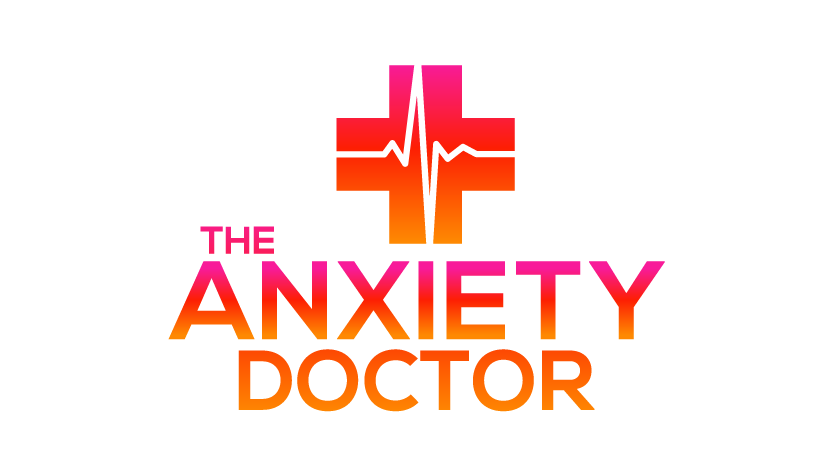How Do I Know If I Have Generalized Anxiety Disorder?
When Your Anxiety is Not “Normal”
Let us start by acknowledging this: anxiety, in general, is normal. Anxiety functions as an alert system to help steer us toward safety and avoid jeopardy. Generalized Anxiety Disorder (GAD), however, is not normal by definition. So what is generalized anxiety, and how is it different from anxiety in general?
What is Generalized Anxiety Disorder?
GAD is a persistent and excessive worry about a number of different things. The topic of the worry can be about anything at all, and it’s focus can dart all over the place with no obvious theme. Individuals who have been diagnosed with GAD spend a lot of time worrying about money, health, work, and/or family. Some do not even know what they are worrying about - they just feel a pervasive sense of worry in general. That can be frustrating!
Diagnosis
When you find it difficult to control your worry, worry to excess, or often worry about things that another reasonable person would not worry about, you may want to check with a Psychologist, therapist, or a Psychiatrist to see if you meet the diagnostic criteria for GAD. It is diagnosed when an individual finds it difficult to control worry on more days than not, for at least six months, and endorses a number of other symptoms on a checklist. There is an assessment measure called the Generalized Anxiety Disorder 7-item (GAD-7) scale that helps your clinician determine how your anxiety symptoms compare to others.
Cause
We don’t exactly know what causes someone to have GAD. However, there is evidence that both nature and nurture are at play. I notice that in my clients presenting with GAD, there are often reports of other family members with anxiety. Again, it is difficult to figure out whether that is because the family in general has experienced more stress or trauma than other families, or whether they have all inherited similar genetics that affect serotonin or cortisol levels.
Prevalence
Granted my sample is skewed since I work primarily with individuals who have been diagnosed with with either anxiety or obsessive-compulsive spectrum disorders (or in many cases, both). So I am surprised by this statistic: 6.8 million adults, or 3.1% of the US population in a given year will be diagnosed with GAD (https://adaa.org/about-adaa/press-room/facts-statistics). I thought it would be much more! Women are twice as likely to be affected. As far as age is concerned, the highest risk is between childhood and middle age, with a slow, gradual onset.
Problems Caused by GAD
So what problems does GAD cause, and how can we recognize it? Well, that actually is one of the problems: it is difficult to recognize. It is often not disruptive enough to be very noticeable to others, and it may just seem like a lot of valid worries to you. Additionally, the worries may even seem rational and situationally-based to you if you are under stress. Outside stress may naturally intensify your worrying and this may not strike you as something that your own brain is contributing to — as opposed to a rational reaction to situational stress.
The Physical Symptoms of GAD
GAD looks like over-thinking, over-preparing, and planning. All of these can be considered virtues to some. So far, we can see how easy it would be to ignore the symptoms. Until the physical symptoms are making matters more obvious, it can be tempting to ignore. GAD usually is accompanied by physical symptoms such as tension in shoulders and neck, headaches, stomachaches, nausea, and faint feelings — whereas plain worry may not.
Cognitive Distortions and Secondary Depression
What is happening behind the scenes, cognitively speaking? Many people with GAD may spend an inordinate amount of time worrying about something small because they are imagining all that could go wrong in the future. This could be a form a cognitive distortion called magnification. (Download a FREE list of cognitive distortions here.) As you can imagine is the case with many chronic conditions, dealing with GAD without help and intervention can lead to depressed symptoms and even depressed mood. It is common to be diagnosed with both GAD and Major Depressive Disorder at the same time.
Avoidances
Once you identify GAD, it becomes imperative to identify ALL your avoidances. This is how you will start to separate YOU from the GAD. Maybe you don’t dislike travel after all. Maybe it is the GAD that makes you feel it is overwhelming and a burden to explore new places. Maybe without the untreated generalized anxiety, you would actually enjoy traveling somewhere new. Same goes for social situations, work experiences, and even daily activities that you find exhausting and anxiety-provoking.
How is GAD Treated?
The first line of treatment for GAD is Cognitive-Behavioral Therapy (CBT), a serotonergic antidepressant (SSRI or SNRI), or both. Recognition of your particular cognitive distortions and learning cognitive restructuring techniques can be very helpful.
Acceptance and Commitment Therapy (ACT) is also a popular choice for therapists when treating GAD.
Mindfulness training is invaluable for GAD — as it is for most things we discuss on this site! I love an exercise called “Worry Wells.”
Relaxation training has also been beneficial for individuals with GAD. My personal favorite is a Progressive Muscle Relaxation (PMR). Try this one.
Meditation and yoga can help, too.
To the extent you are able, use exercise as a tool to reduce your stress levels and increase your feel-good chemicals.
And finally, there are alternative treatments, such as acupuncture and various movement techniques that you might try to see what might help you in addition to the above.
I would really like to hear what you have found works for you. Let me know!






